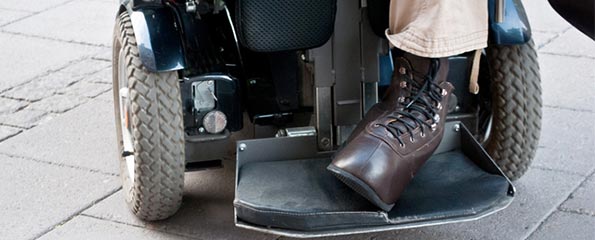Purpose
This study will examine how West Nile virus (WNV) infection affects the body. Some people infected with WNV have no symptoms. In others, symptoms may vary from fever and headache to a polio-like syndrome with paralysis, to coma and brain changes like those of a stroke. Many patients recover with no lasting effects, while a few can have long-lasting neurological damage or may die. This study will collect clinical, laboratory, diagnostic, and radiographic information on people thought to have WNV to better understand the disease.
Official Title
Conditions
– West Nile Virus- Encephalitis- Myelitis
Study Type
Observational
Study Design
Natural History
Further Details
‘Investigation of the Natural History of West Nile Virus Infection in Patients with or at Risk for Progression to West Nile Virus Encephalitis and/or Myelitis’ is a descriptive natural history study. Since arrival of West Nile virus in North America in 1999, the number of cases and the geographic range have expanded each year, a trend that is expected to continue for the near future. There is little sequentially collected clinical, radiologic and laboratory data. Standardized data collection tools to measure neurologic outcome have not been developed. Prospectively collected data on laboratory and clinical events associated with WNV encephalitis are needed to bridge the gap in current knowledge of this disease and to assist with the design of better treatments. The objectives of this study are to identify and describe the mortality and morbidity, specifically the neurologic and functional outcomes of patients infected with West Nile virus, to characterize their clinical course and diverse manifestations, and to assess kinetics of specific anti-West Nile antibodies following infection with West Nile virus, correlating them with outcomes. Eligible patients fall into 2 categories: those with encephalitis and/or myelitis, presumptively caused by WNV, and those with confirmed acute WNV infection who are at high risk for progression to neurologic illness due to age or immunosuppression. Only hospitalized patients will be enrolled. There will be study visits at Day 1; Days 2, 3, 4, 5, and 6 if hospitalized (if not hospitalized only seen on Day 3); and Days 7, 14, 30, 90, and 180. Evaluations will include serial neurologic exams, an MRI at baseline and at day 30, serology and PCR for WNV, and 4 functional and cognitive scores which have been validated in neurologic illness in adults: the Barthel Index (BI), the Modified Rankin Scale (MRS), the Glasgow Outcome Score (GOS) and the modified Mini-Mental Status Examination (3MS). The subset of patients who develop motor weakness of their extremities will have electromyograms, nerve conduction studies and spinal MRI performed. Results from selected clinically indicated tests (done by study participants’ physicians, not mandated for the study) will be recorded in the Case Record Forms (CRFs).
Study Start
Eligibility & Criteria
Genders Eligible for Study: Both Criteria INCLUSION CRITERIA:Hospitalized patients, regardless of race or gender, who consent and meet entry criteria will be enrolled. Eligible patients must fall into one of two categories:A. Hospitalized patients greater than or equal to 18 years of age with encephalitis and/or myelitis as defined below:New neurologic abnormality:Asymmetric extremity weakness without sensory abnormality; orOther neurologic abnormality (including altered level of consciousness) plus fever (subjective or objective) within the previous 4 daysANDCSF examination within the previous 72 hours showing:Absence of organism on gram or fungal stainWhite blood cell count greater than or equal to 4 per mm(3)Ratio of CSF: plasma glucose of greater than or equal to 40% (CSF glucose/plasma glucose greater than or equal to 0.4)ORB. Hospitalized patients without encephalitis and/or myelitis who meet the following criteria:A positive IgM serology or PCR test for WNV in blood or cerebrospinal fluid,ANDClinical illness compatible with WNV infection as described by occurrence of greater than or equal to 3 of the following findings during the preceding less than or equal to 7 days:Diarrhea, headache, fever greater than 38 degrees Celsius, nausea and/or vomiting, myalgias and/or arthralgias, nuchal rigidity, macular or papular rash, new neurological abnormalityANDA risk factor for the development of encephalitis as defined by:Age greater than or equal to 50 years, orAge greater than or equal to 18 years, plus immunosuppression, as defined by any one of the following:Hematologic malignancy, previous diagnosis of diabetes mellitus, chemotherapy within previous 4 weeks, stem cell transplant recipient or solid organ transplant recipient, taking immunosuppressive medications, including prednisone greater than or equal to 7.5 mg/day within the previous 4 weeks, history of human immunodeficiency virus (HIV) infection, congenital immunodeficiency syndrome (including common variable immunodeficiency)EXCLUSION CRITERIA:Unable to obtain valid informed consentAlternate explanation (as determined by the investigator) for clinical findings (such as structural brain lesions, cerebrovascular accident, or other infectious disease)Investigator’s opinion that patient would be unable to adhere to protocol requirements
Total Enrolment
110
Contact Details
Source: Warren G Magnuson Clinical Center (CC)
All content and media on the HealthEngine Blog is created and published online for informational purposes only. It is not intended to be a substitute for professional medical advice and should not be relied on as health or personal advice. Always seek the guidance of your doctor or other qualified health professional with any questions you may have regarding your health or a medical condition. Never disregard the advice of a medical professional, or delay in seeking it because of something you have read on this Website. If you think you may have a medical emergency, call your doctor, go to the nearest hospital emergency department, or call the emergency services immediately.







